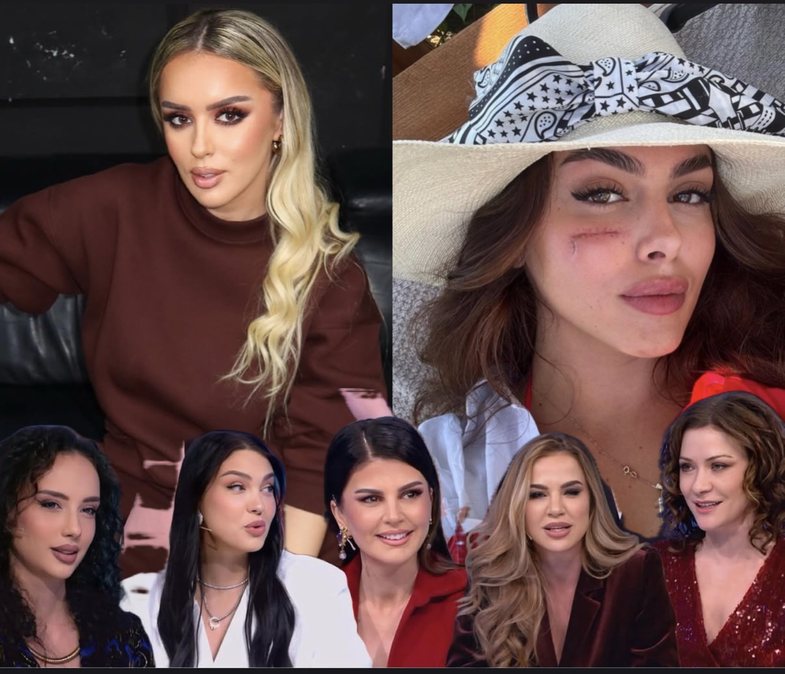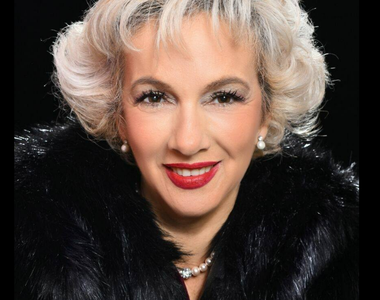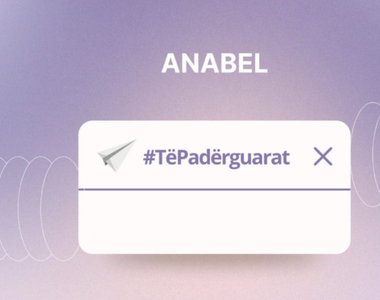
After a several-month break from the media, Antonela Berisha returned to the screen sensationally, in the show "Goca dhe Gra". But this time the invitation was different, not for any awareness campaign, any professional success or any personal achievement. Her comeback was wrapped up in "inspiration" tags, serving us a sporty collection in brown, black and cherry colors, titled "Embrace Your Flaws". An interesting message, but controversial especially when it comes from someone who is involved in a violence scandal.
The interview started with a warm welcome, applause and summary words from Einxel Shkira, who assessed her comeback as "a big break and finally a comeback".
Egla Ceno directed the conversation to the key point, finally the long-awaited question: "Is this collection related to the event you spent with your sister?" A question to which Antonela answered with a public apology, apologizing for the "serious event". But who did he apologize to? The victim? No. It was all a theatrical bow to the public, avoiding a direct address to Klea Prenga, the girl who was hit with a glass bottle by the Berisha sisters in a restaurant in Tirana. An apology for the eyes and cheeks, which was followed by empty words about the past and the power of "resurrection".
"How was that period for you? Did you learn any lessons?”
This was Rudina Dembacaj's philosophical question, which deserves its own time here. What is the lesson that can be learned from such a situation? That cameras are not allies when committing an act of violence? Or that the wrong place and the wrong time are not favorable circumstances to produce milk? Antonela closed this chapter by saying that "it happened in the wrong place, at the wrong time." It remains to be guessed: what would be the right place? An abandoned place? Right time? A day without any media presence?
"Do you feel like apologizing publicly?"
This is the most absurd question, given that Antonela had just apologized (directed only to the public). But what else could she say but confirm it? "Yes, definitely," she said, summarizing what the audience had already heard. But no sign of empathy for the victim, only a focus on "her work to bring something positive to society".
To seal her moment of "reflection", Antonela referred to herself as a "public figure who is important in the impact she brings to people". And here you stop to reflect on the truth of this statement. What impact could a video of someone hitting another with a glass bottle have had? Did you think people were inspired? Or did this "impact" serve as a reminder that violence can be rehabilitated with a televised apology and a sports collection?
When asked about the messages she received after the event, Antonela tried to draw attention to "the great support she received from followers." She said that many women had written to her about similar situations, where they "found themselves" in her story. What part of history did they find themselves in? In personal conflicts that end in violence? Or maybe in the illusion that television penance forgives everything?
" Of course we do not support any form of violence."
But the irony was clear: Now a violence scandal turned into a platform for personal rehabilitation and fashion promotion. The violence got a TV platform, a major twist narrative and an opportunity to sell collectibles. Instead of creating a genuine message of repentance and awareness, the interview served as a guide for those who think they can build their fame on the pain of others. Antonela, the "strong" of the television showdown, taught us another lesson: if you are going to succeed in appearing on the screen, the repentance should not be sincere, but simply well packaged.
So what was the impact of all this? Positive, according to Antonela. And in some inexplicable way, maybe he's right. Ultimately, this is a worthy comeback to remind us that on television, anything can be sold - even "regrets."
This article is a personal opinion, written by J. Zguro, contributing editor at Anabel Media.





